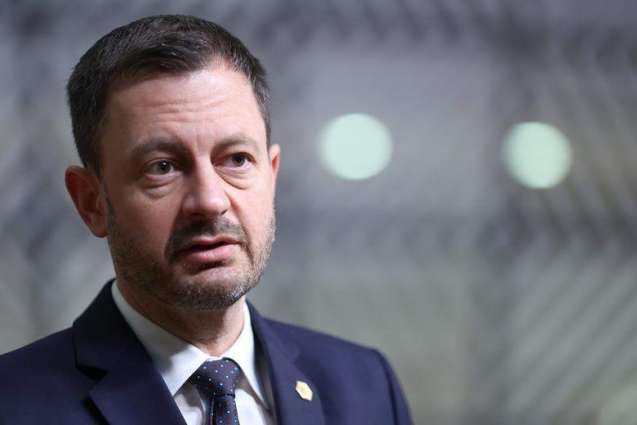Slovak Prime Minister Eduard Heger said on Monday that he had met with his Hungarian counterpart, Viktor Orban, and tried to persuade him to support the joint position of the European Union on Russia sanctions by banning Russian oil supplies
PRAGUE (Pakistan Point News / Sputnik - 30th May, 2022) Slovak Prime Minister Eduard Heger said on Monday that he had met with his Hungarian counterpart, Viktor Orban, and tried to persuade him to support the joint position of the European Union on Russia sanctions by banning Russian oil supplies.
Heger told Slovak broadcaster TA3 that he had met with Orban in Brussels before the Council meeting on the Russian oil embargo earlier on Monday.
"My goal (in talks with Orban) was to 'get him on board' because it is important to maintain unity and adopt the sixth package of sanctions. Everyone understands that the money we pay for Russian gas and oil provides finances for the Russian war in Ukraine. That was the purpose of our discussion, and I hope it was a success," Heger said.
Orban said earlier on Monday that "there is no agreement at all" on the EU's oil embargo against Russia. He also welcomed the EU's proposal to exclude Russia's pipeline oil deliveries from the sixth package of sanctions.
European Commission President Ursula von der Leyen said that the European Council is unlikely to come up with a decision on the Russian oil embargo within the next 48 hours.
Russia launched a special military operation in Ukraine on February 24 after the breakaway Donetsk and Luhansk people's republics applied for help in fending off Kiev's aggression. The EU and other Western countries have since been pressuring Russia with sanctions.
The EU has already rolled out five sanctions packages and is preparing the sixth one. The European Commission announced plans to impose a blanket ban on Russian oil weeks ago; however, several European countries, including Hungary, continue to block its adoption due to concerns about a negative impact on their economies and energy security.




